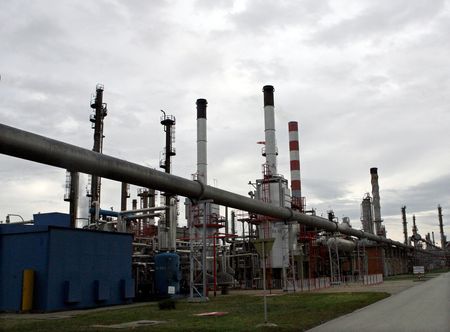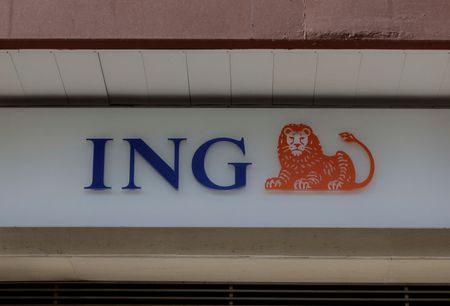BELGRADE (Reuters) -Serbia has ample crude oil and fuel in storage to meet demand in the short term but U.S. sanctions set to come into force on October 1 cast a shadow over the landlocked Balkan nation’s future energy security, sources told Reuters on Friday.
Russian-owned oil company NIS said earlier it had secured adequate crude and fuel stocks after Serbian President Aleksandar Vucic confirmed that the U.S. would not extend further a waiver for sanctions first announced in January.
NIS did not disclose inventory levels or how long supplies would last. Four sources familiar with the matter said the refinery could operate for two months and provide refined products to cover demand for slightly longer.
Russia’s Gazprom Neft owns a 44.9% stake in NIS, an investment unit of Russia’s Gazprom has around 11.3%, and the Serbian government 29.9%.
LONG-TERM ENERGY SECURITY UNCERTAIN
NIS operates Serbia’s only oil refinery and supplies around 80% of Serbia’s diesel and gasoline demand, and 90% or more of jet fuel and heavy fuel oil, a trader told Reuters.
The U.S. sanctions targeting Russia’s oil sector were announced on January 10 but had been repeatedly postponed.
Once they are enforced, foreign banks may halt transactions with NIS, leaving domestic banks, which lack sufficient capacity.
“Authorities need to immediately ensure NIS has access to domestic financial markets, and then within the next month or two, do whatever it takes to keep the Pancevo refinery running,” said one Serbian fuel industry source who asked not to be named.
“There’s no alternative for market supply without the refinery operating.”
NIS is majority-owned by Russia’s Gazprom Neft (SIBN.MM) and Gazprom (GAZP.MM) and as such is one of Russia’s last remaining oil assets in Europe.
Earlier this year, Reuters reported that NIS was struggling to buy oil from traders abroad, while at home its former clients were seeking alternative fuel suppliers due to the pending sanctions.
JANAF PIPELINE IMPACT
NIS’ 4.8 million ton/year capacity Pancevo refinery gets all of its crude oil via Croatia’s JANAF pipeline.
JANAF confirmed on Friday it would have to cease supplies to NIS when the sanctions take effect, but will appeal to the U.S. Office of Foreign Assets Control (OFAC) to extend its licence.
“It is now for NIS to provide evidence to explain why the licence should be extended,” Vladislav Veselica, a JANAF board member, told Reuters.
He said the company’s lawyers in the U.S. would file for the extension on Friday. NIS accounts for more than 30% of JANAF revenues.
(Reporting by Ivana Sekularac and Robert HarveyEditing by Edward McAllister and Gareth Jones)











